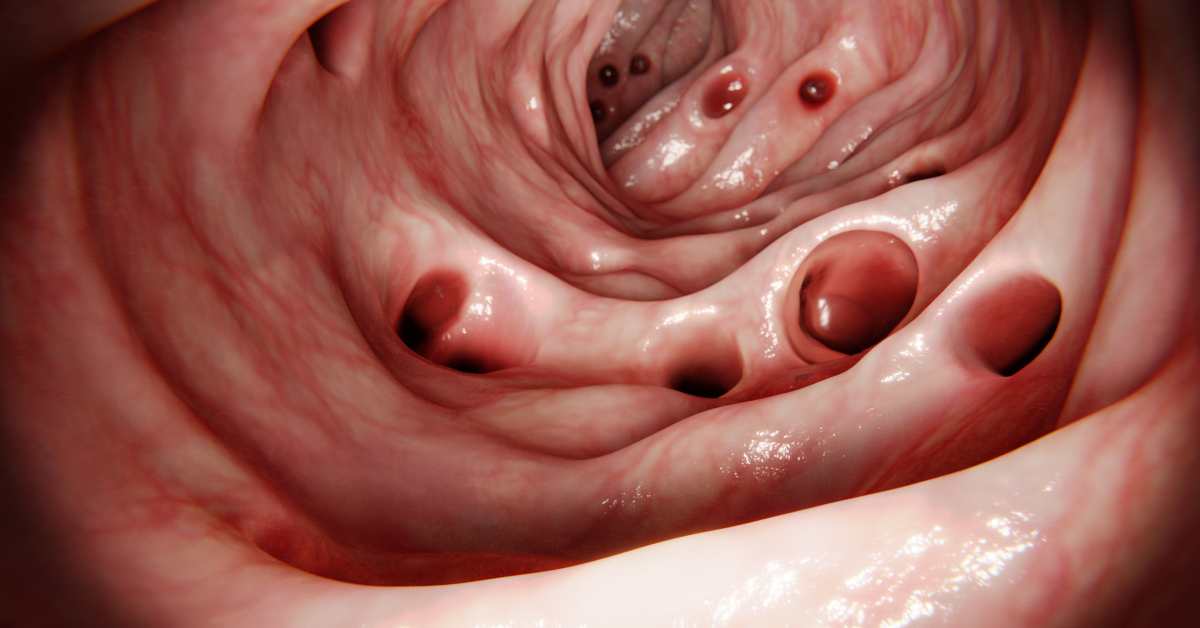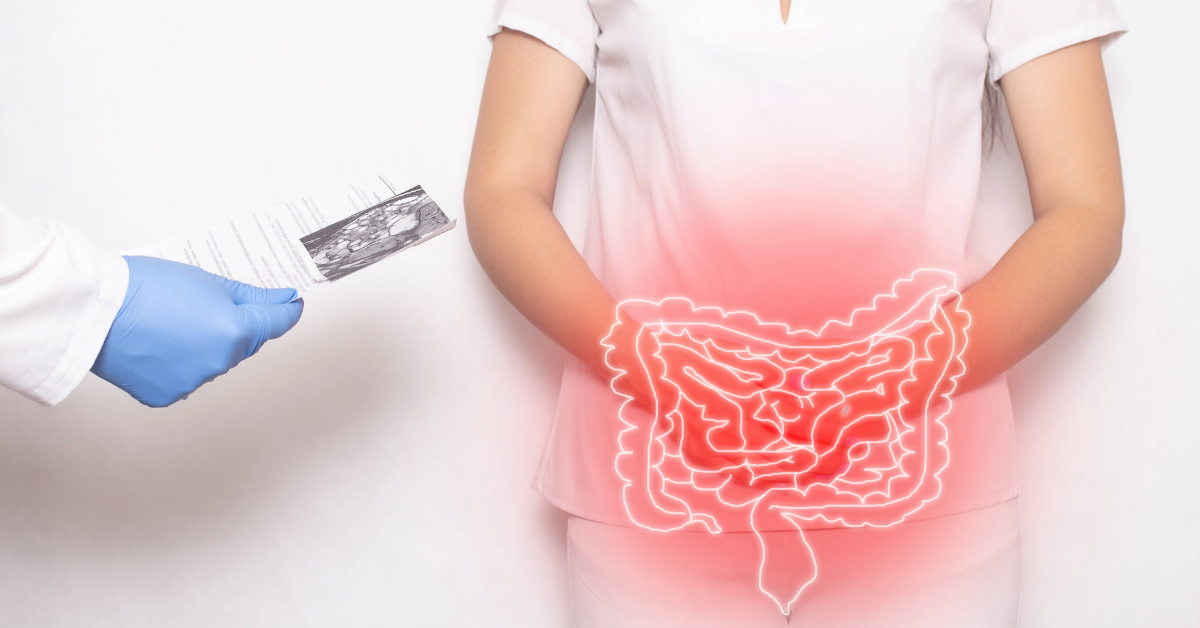Diverticulosis is a condition which occurs when the inner layer of your digestive tract bulges through weak points in its outer lining, creating small pockets known as diverticula. While this can occur anywhere in the digestive tract, it most frequently takes place in the colon, or large intestine. While it rarely appears in younger people, diverticulosis is very common among the elderly, affecting roughly half of adults over the age of 60.

The precise cause of diverticulosis is not definitively known, but evidence has suggested a variety of different causes. Some doctors hypothesize that diverticula are formed due to muscle spasms or strains. Another theory is that diverticulosis results from not getting enough dietary fiber, which can cause constipation and a resultant buildup of pressure against the walls of the colon.
In most cases, diverticulosis by itself will not cause any noticeable symptoms. When symptoms are present, they are typically rather mild and include abdominal cramps, bloating, constipation, or diarrhea.
The biggest risk factor is age – diverticulosis affects very few people under the age of 40 but becomes much more prevalent among adults over the age of 60. Diverticulosis also appears more often in men than in women.
Other things that may increase your risk include smoking cigarettes, not getting regular exercise, and eating a diet that is high in saturated fats and/or low in fiber. There are also some drugs, such as NSAIDs (non-steroidal anti-inflammatory drugs, like aspirin and ibuprofen), steroids, and opioids, which may weaken the lining of the digestive tract, making diverticula more likely to form.
Since diverticulosis rarely has symptoms, diagnosis usually takes place during an unrelated medical test or routine screening for other digestive issues. If you do have noticeable symptoms, tests will be taken to rule out other possible causes, as digestive conditions like irritable bowel syndrome (IBS) and peptic ulcers can have similar symptoms.
In cases which cause symptoms, your doctor will review your medical history, discussing lifestyle, diet, and other relevant factors, and perform a physical exam which may include a digital examination of the rectum. Samples may be taken of blood or stool to check for bacteria that would indicate an infection. CT scans may indicate the presence of inflamed diverticula, and a colonoscopy would allow your doctor to directly view the pockets themselves.

Once pouches have formed in the lining of the colon, they are there to stay. However, most patients with diverticulosis do not have symptoms and a gastroenterologist can prescribe treatment that will greatly alleviate symptoms if they are present and prevent further issues from developing in the future. Helpful treatments may include changing your diet to include more fiber and probiotics (helpful stomach bacteria which can be gotten from supplements or some foods). Quitting smoking, getting enough exercise, and eating less red meat can all help to avoid complications from diverticulosis.
The best measures to prevent diverticulosis involve maintaining healthy bowel movements and avoiding constipation. This means getting enough exercise, eating a diet high in fiber, and making sure to drink plenty of water every day.
The presence of diverticulosis does not necessarily mean that any significant problems will develop. However, when one or more of the diverticula become inflamed or infected, it causes a related condition called diverticulitis, which can cause stomach pain, sensitivity to touch, bleeding, and flu-like symptoms including fever, nausea, vomiting, and chills. Diverticulitis can often be treated with simple interventions like rest and antibiotics, but more serious or chronic infections can require surgery to remove a part of the colon.
Untreated diverticulitis can also cause the formation of a pus-filled abscess in the wall of the colon, which often requires hospitalization and may necessitate a minimally invasive procedure to drain the abscess. In rare cases, life-threatening issues such as diverticular hemorrhaging or a perforated colon may occur.
While diverticulosis simply refers to the formation of pouches in the wall of the digestive tract, diverticulitis, the primary medical concern related to diverticulosis, describes the condition in which these pouches become inflamed.
Diverticulosis is a condition in which the inner lining of the digestive tract pushes through its outer wall, creating pockets or pouches which are known as diverticula. It is very common in older adults, and while its exact cause is not known, it is often thought to result from a diet which provides insufficient fiber. Diverticulosis does not go away by itself after appearing, but typically does not have any noticeable symptoms. The primary risk of unaddressed diverticulosis is a related condition called diverticulitis, which occurs when the diverticula become infected or inflamed.




